Clinical Faculty Preceptors Recognized for Mentoring CHSU Medical Students
September 5, 2024
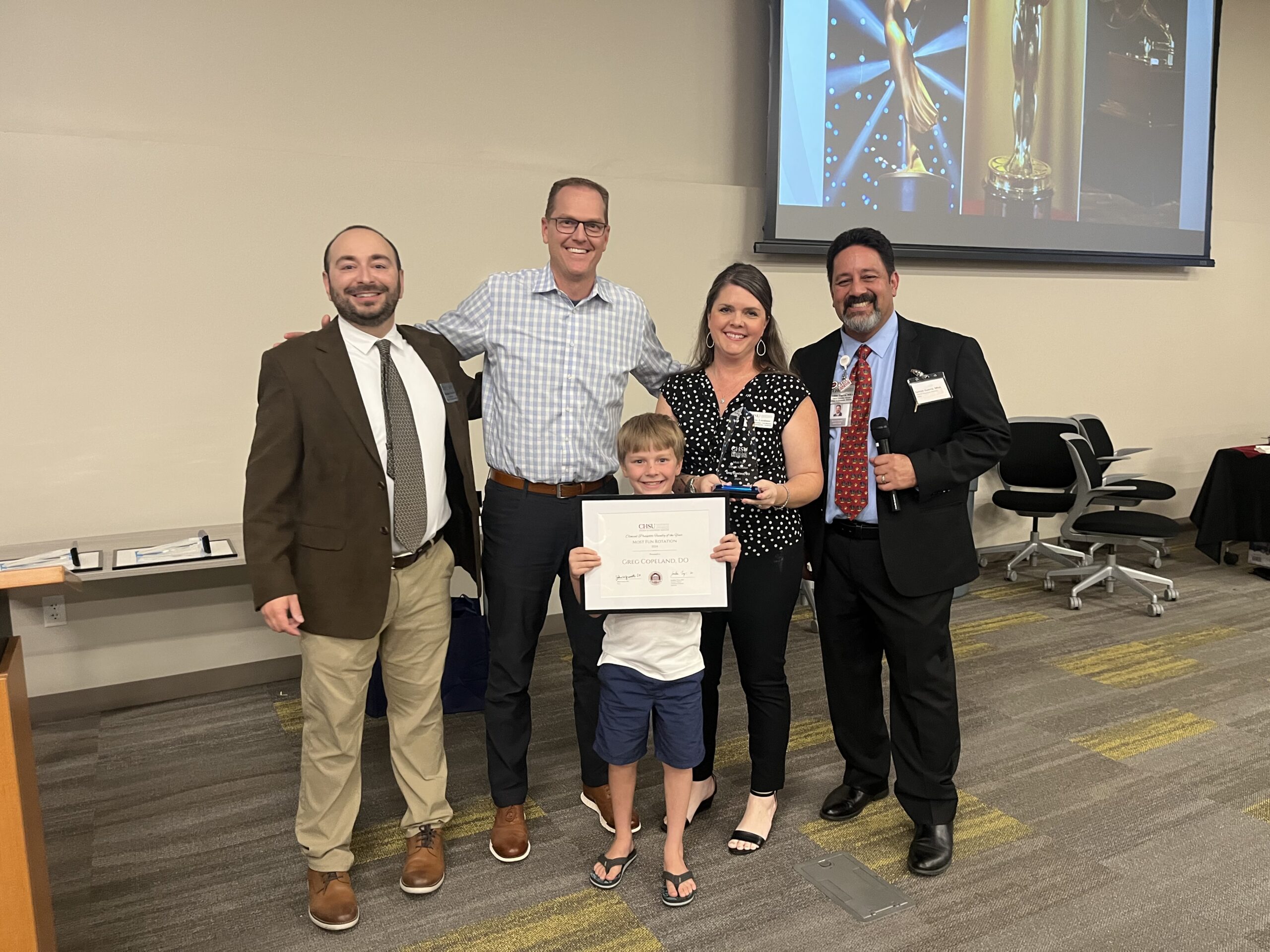
The California Health Sciences University College of Osteopathic Medicine (CHSU-COM) Community Clinical Education Department hosted its annual Preceptor Appreciation Dinner in August at the CHSU campus.
The event was held to honor physicians from within the community who serve as clinical faculty preceptors. These dedicated educators help shape the next generation of physicians by providing clinical training to CHSU-COM third- and fourth-year medical students.
“I want to extend my heartfelt gratitude for your invaluable contributions
John Graneto, DO, Dean of the CHSU College of Osteopathic Medicine.
to the education and development of our medical students. Your
dedication, expertise, and willingness to share your knowledge have a
profound impact on their learning experiences,”
Through the dedication of CHSU faculty and the clinical faculty preceptors, 100% of the CHSU-COM inaugural class of 2024 matched to a residency program with 34% matching in the Central Valley and 65% matching in Primary Care specialties.
CHSU welcomed dozens of local physicians who serve as CHSU Clinical Faculty Preceptors at the event. They were invited to tour the medical school campus, experience the innovative learning technology in the Simulation Center, and had a wonderful dinner and awards ceremony.
2024 Clinical Faculty Preceptor Award Recipients at CHSU-COM
Congratulations to the following 2024 Clinical Faculty Preceptor award recipients at the CHSU College of Osteopathic Medicine:
Clinical Faculty Preceptor of the Year, Internal Medicine – Dominic Dizon, MD
Clinical Faculty Preceptor of the Year, Family Medicine – Saurabh Sharma, DO
Clinical Faculty Preceptor of the Year, Surgery – George Hsu, DO
Clinical Faculty Preceptor of the Year, Pediatrics – Aftab Naz, MD
Clinical Faculty Preceptor of the Year, Women’s Health – Arpineh Minassi, MD
Clinical Faculty Preceptor of the Year, Behavioral Health – Ansar Malik, MD
Clinical Faculty Preceptor, Most Fun Clinical Rotation – Greg Copeland, DO
Clinical Faculty Preceptor, Best Overall Experience – Fateh Entabi, MD
Clinical Faculty Preceptor, Best Clinic Support Staff – Patrick Golden, MD
Clinical Faculty Preceptors, Making a Difference in the Central Valley – Gabrial Carpio-Bracho, MD & Mario Gutierrez, MD of Pride Sports Medicine
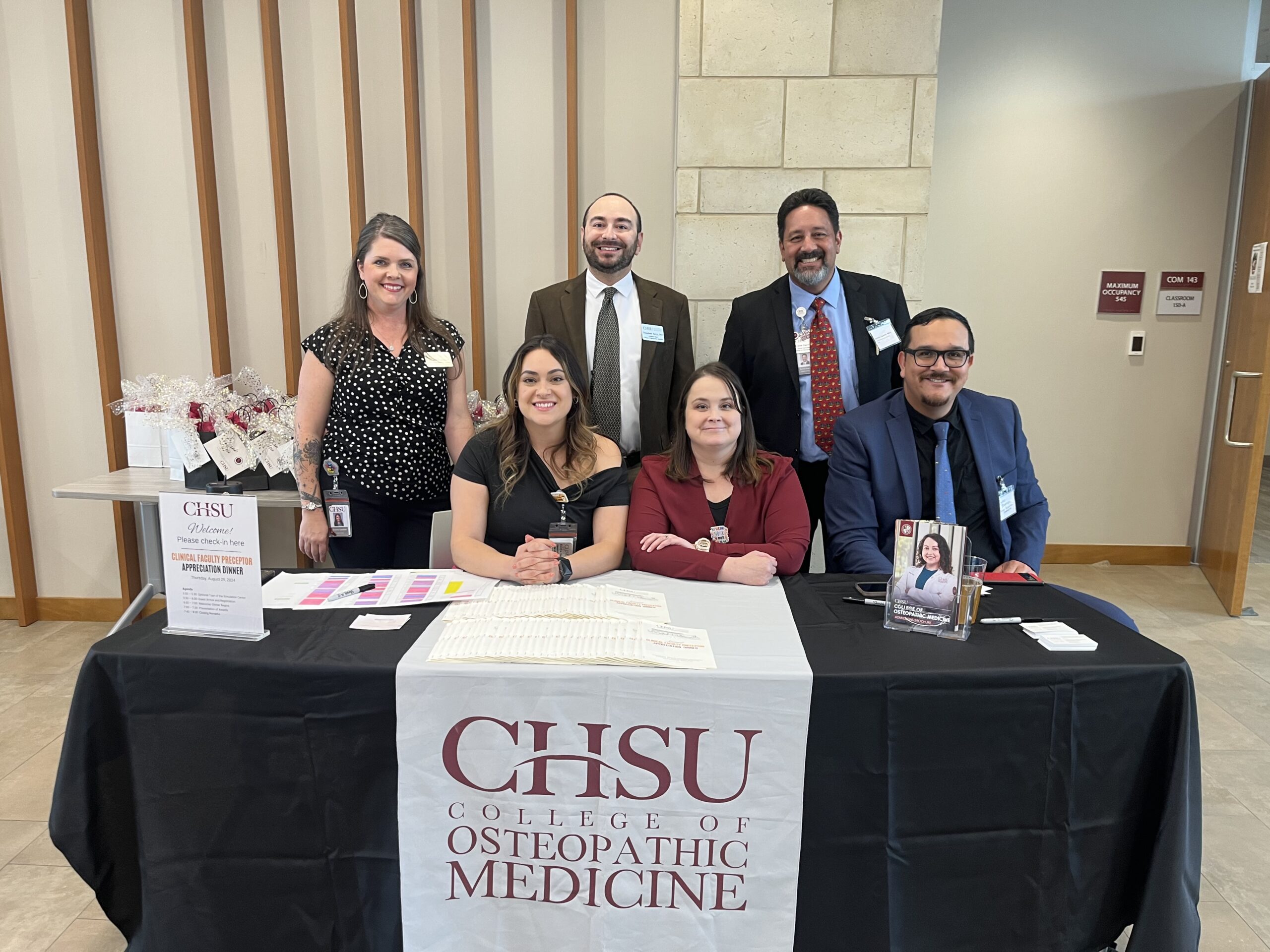
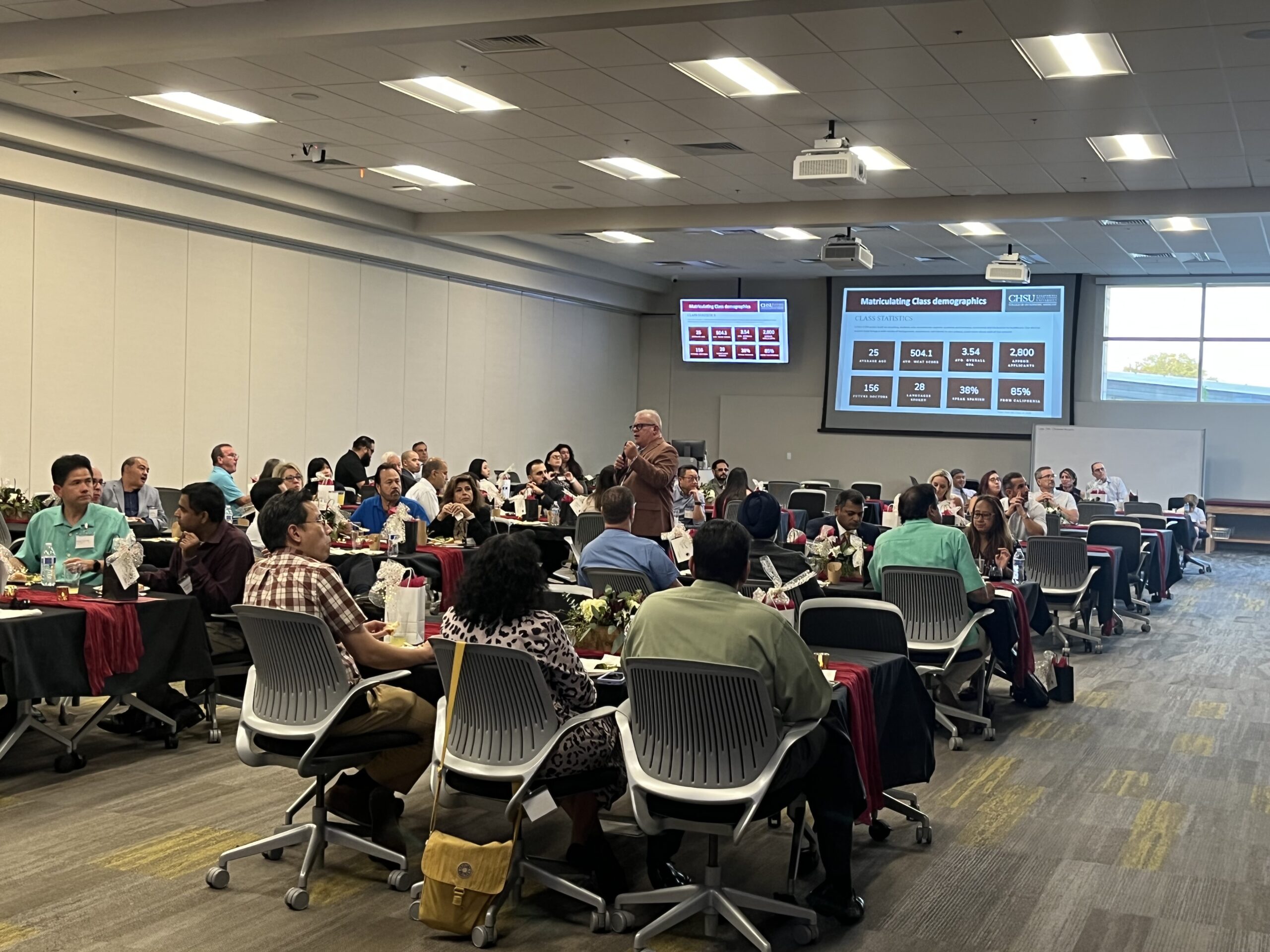
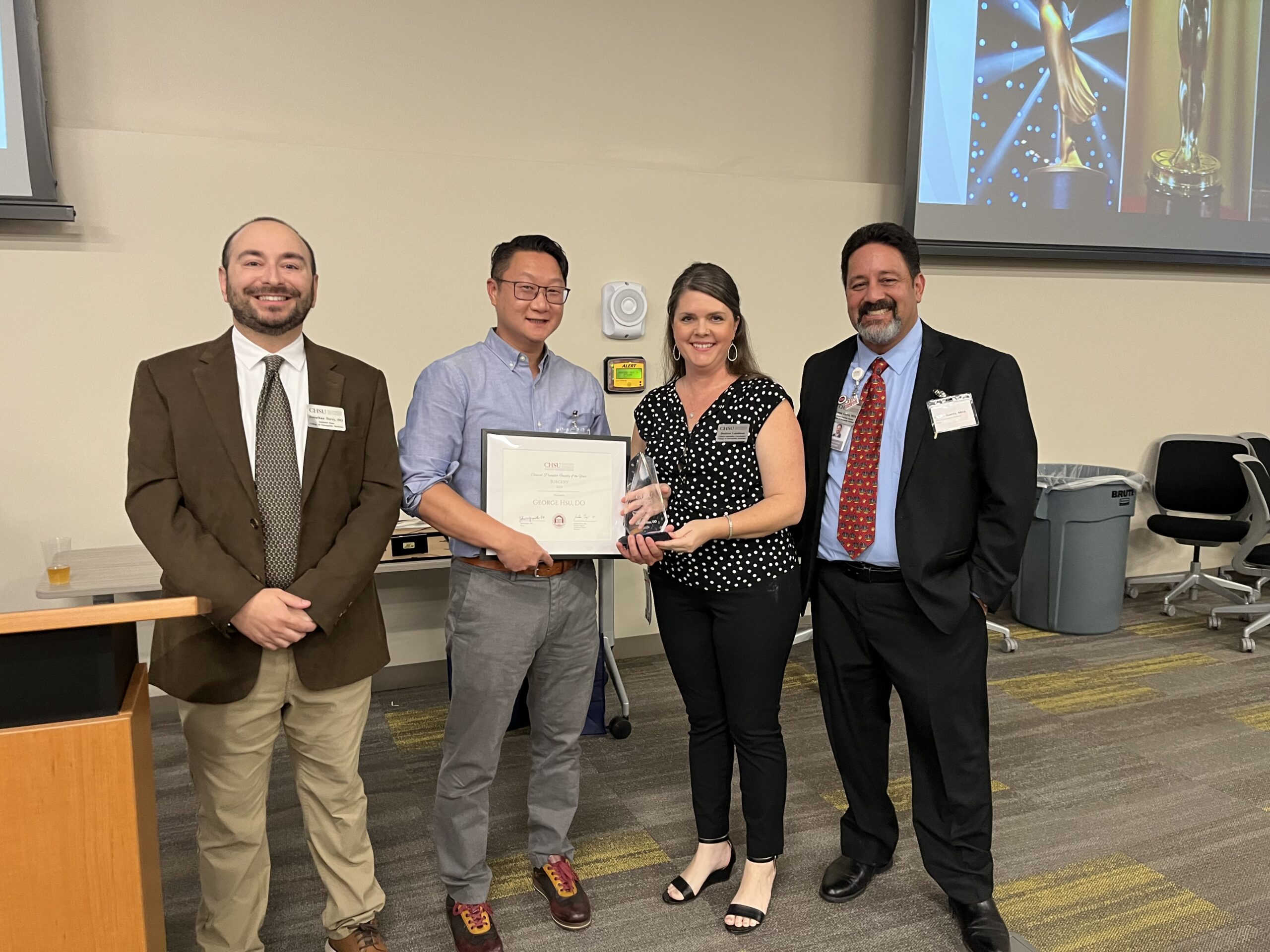
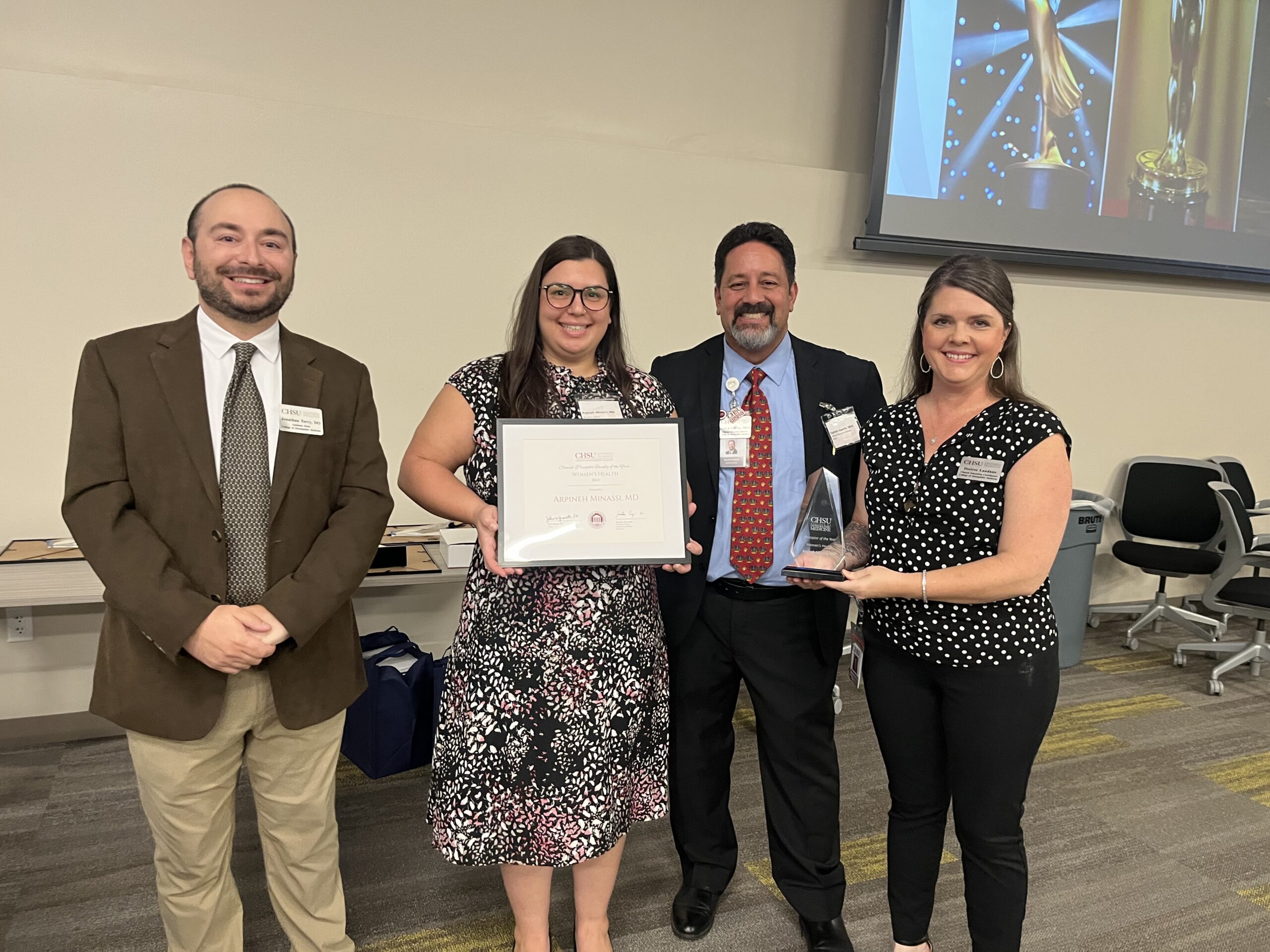
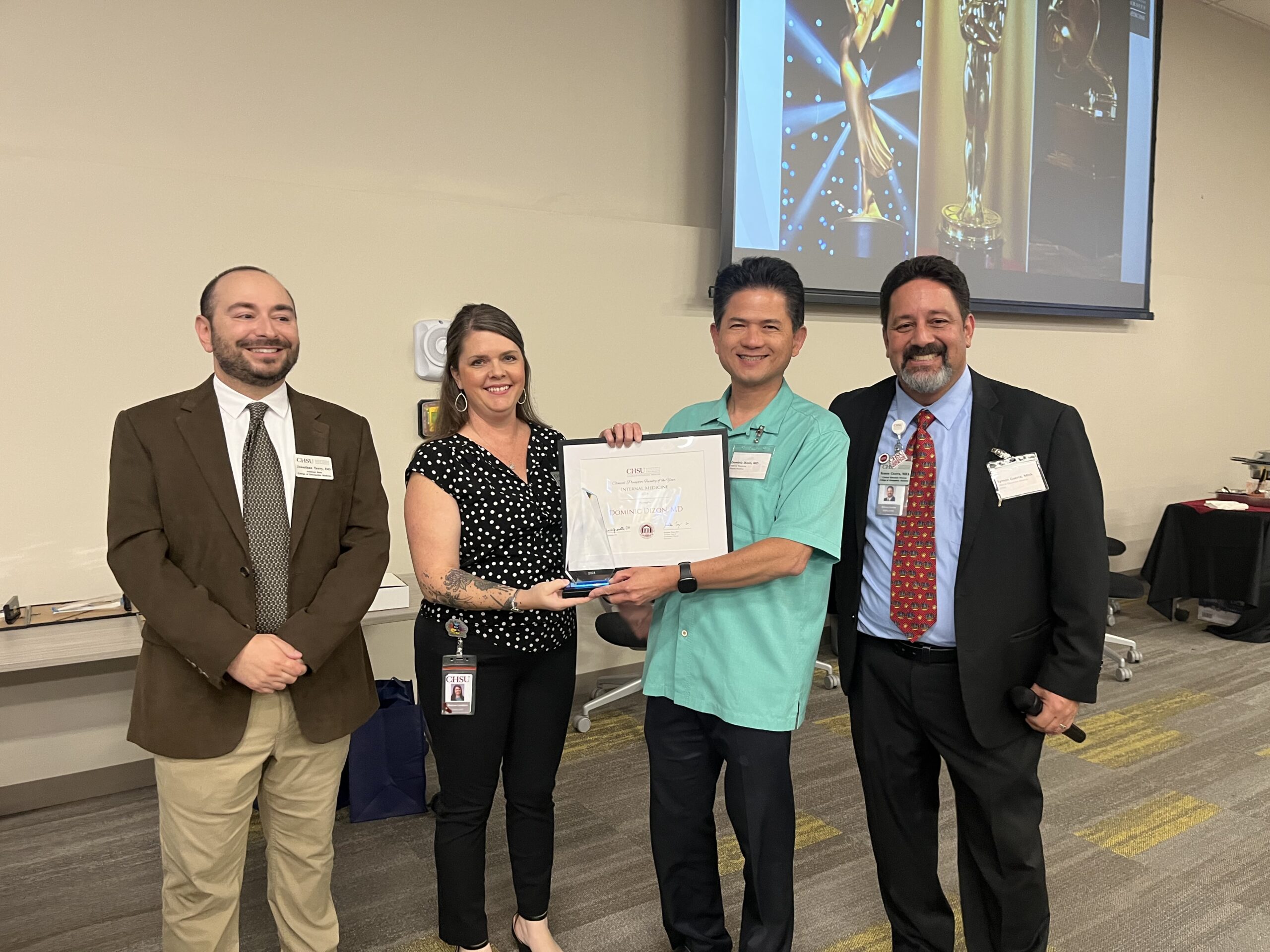
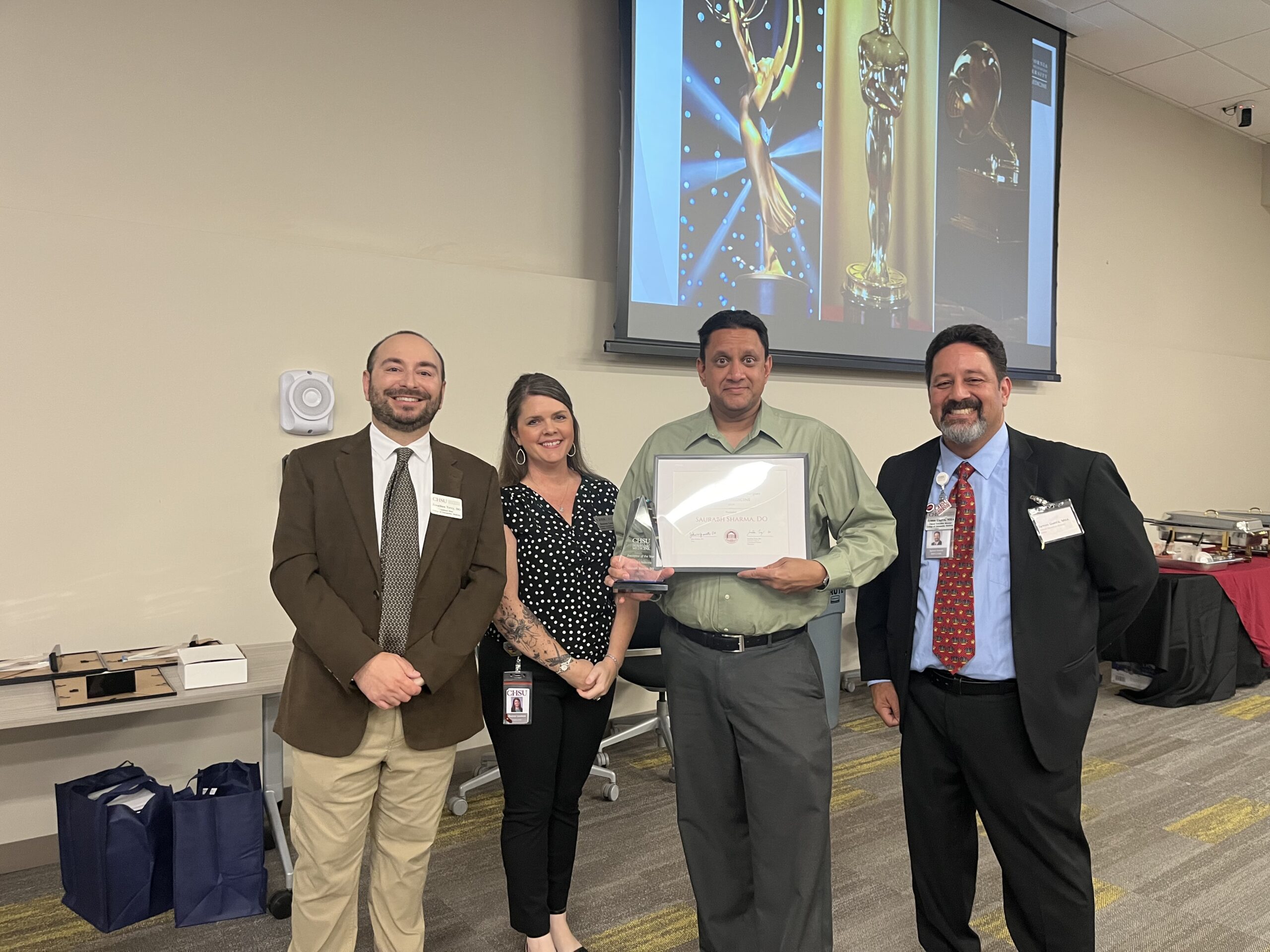

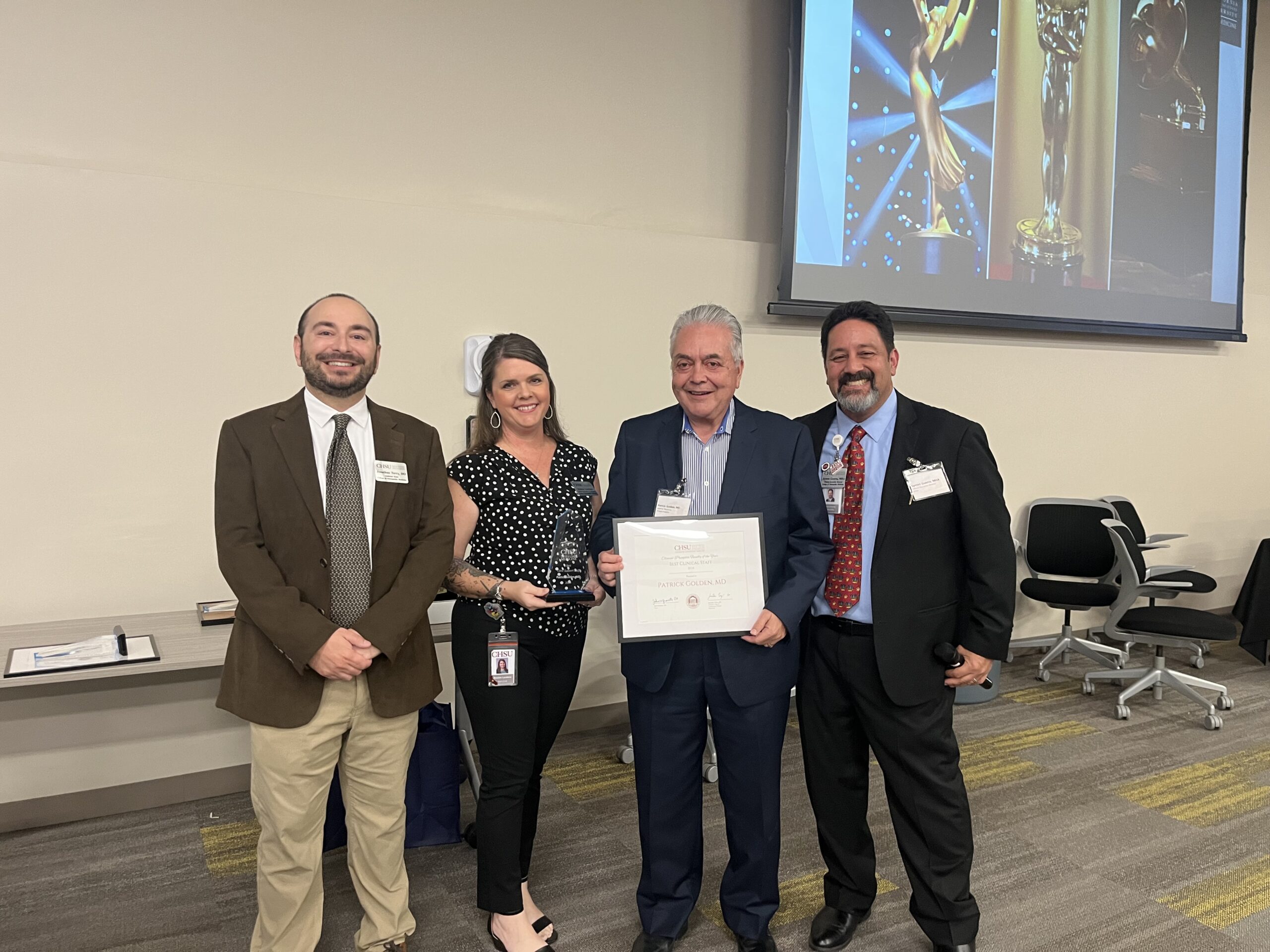
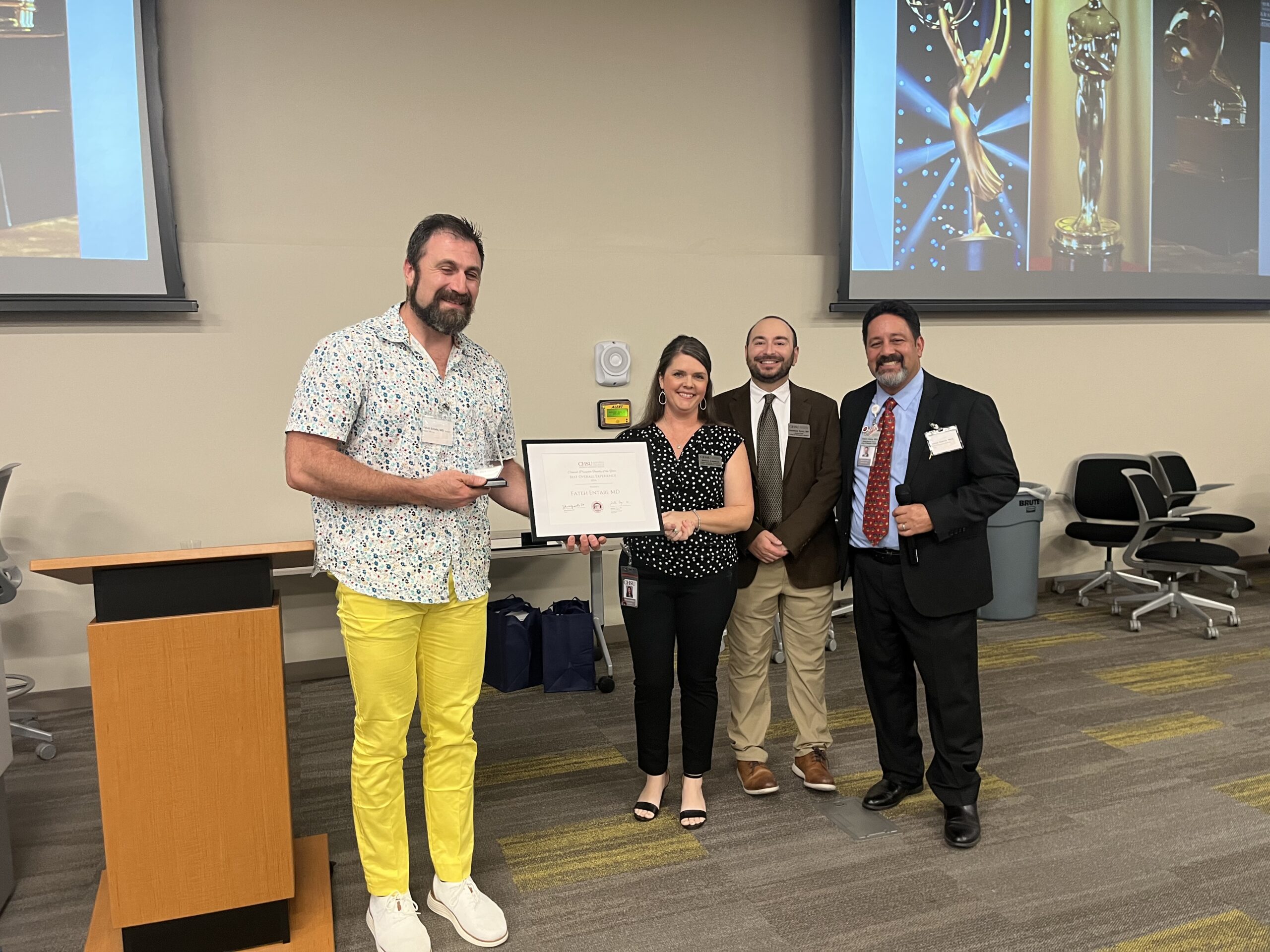
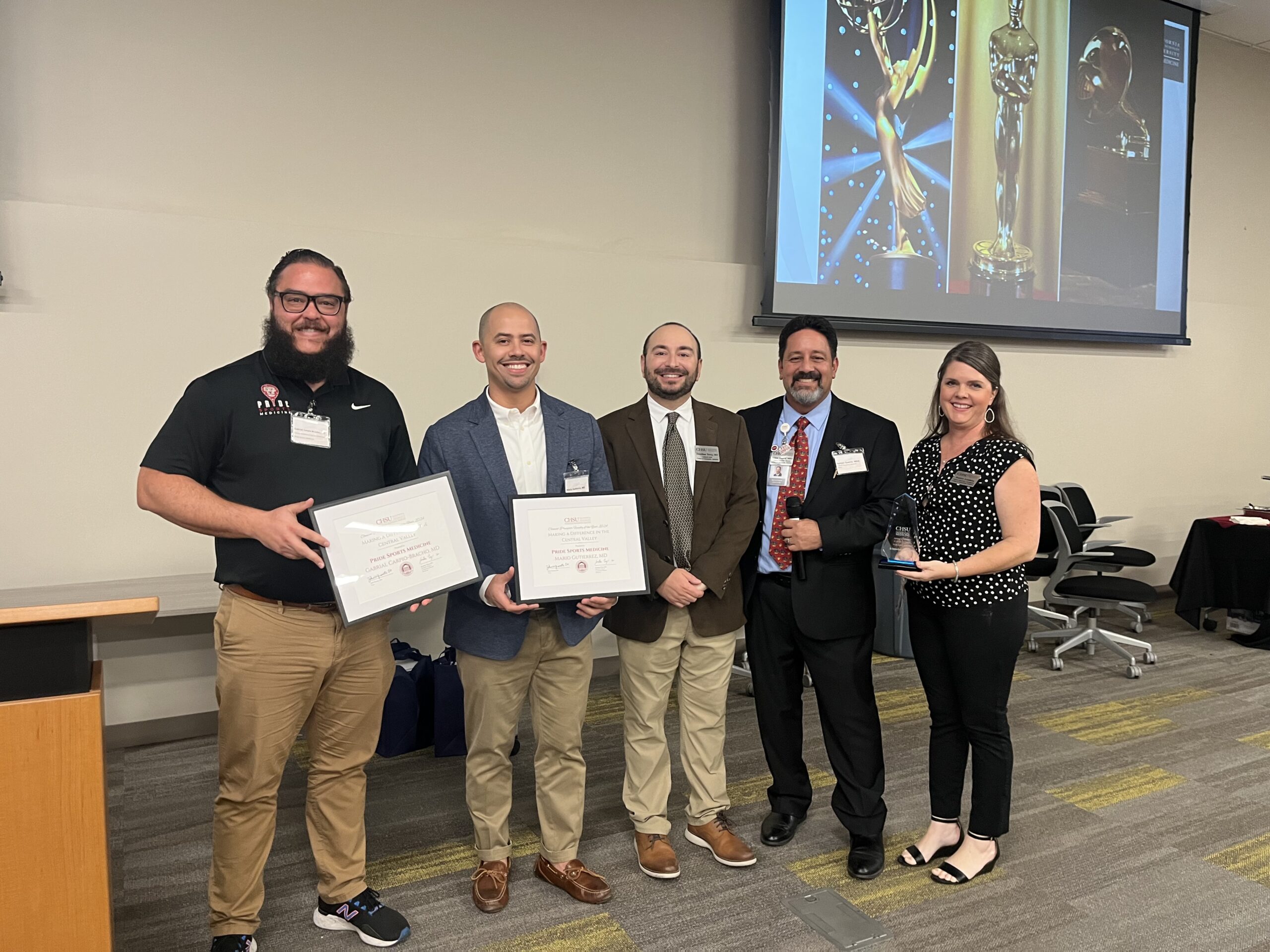
Clinical Faculty Preceptors support third- and fourth-year clinical training. By agreeing to supervise and mentor medical students, preceptors are shaping the next generation of providers. It is through a combination of office-based and hospital experiences that most of our students realize the “essence” of becoming a physician in the 21st century.
As such, they are heavily influenced by the passion, empathy and fortitude of their preceptors. Preceptors are mentors – a role which requires specific skills and functions.
Preceptor Duties
- Set expectations for students early in their rotation
- Provide ongoing feedback throughout the rotation
- Fill out evaluations and discuss them with students on the last day of their rotation
- Always be an exemplary and positive role-model (teach them about your specialty and the profession in and out of the office).
- To optimize the teaching/learning encounter with a CHSU COM medical student, preceptors are asked to carry-out the following functions:
- Orient student to the rotation and training site. Clearly identify specific service and personal expectations.
- Encourage office/ancillary care staff to be helpful and make student feel a part of the team.
- Complete a formal written evaluation of the student’s performance during the rotation and give formative feedback midway through rotation.
- Contact the Assistant Dean to discuss issues of concern and poor student performance.
Teaching Duties
- Serve as a mentor (experienced and prudent advisor) who assists the student in applying knowledge and building skills to problem-solve patient care.
- Provide a variety of patient cases and adequate patient volume.
- Challenge the student with deliberate and thoughtful questions.
- Allow the student to participate in patient management to a degree appropriate for the level of training.
- Provide written and verbal feedback to the student in a constructive and timely manner.
- Be available, on site, for assistance during all patient care activities.
- Share learning resources (texts, computers and educational programs if available) sufficient to increase student knowledge and productivity.
- Assign readings, literature searches, or medical information gathering pertinent to patient cases.
For more information about becoming a Clinical Faculty Preceptor visit our Community Clinical Education webpage and complete the Preceptor Interest Form online.